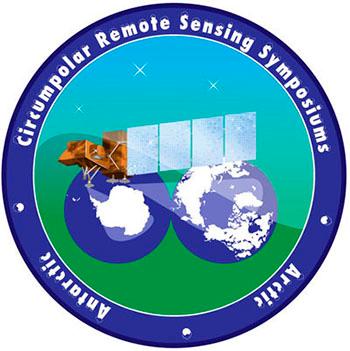|
|
|
|
|
|
|
|
Media
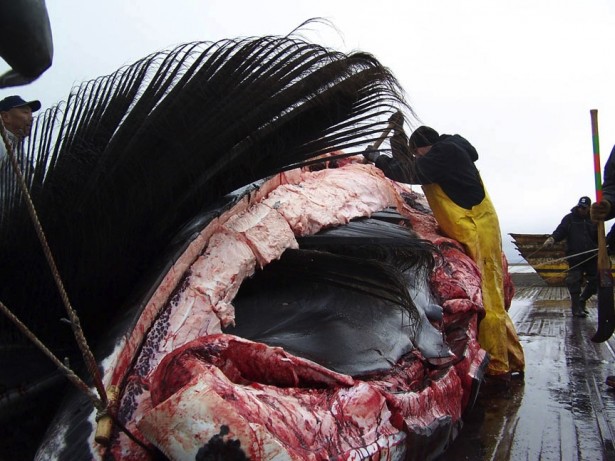 Alaska Whalers Guaranteed Harvest 'In Perpetuity.' Alaska Whalers Guaranteed Harvest 'In Perpetuity.' Alaska's subsistence whaling community gained a significant victory Wednesday at the International Whaling Commission's annual meeting in Brazil, with the approval of a measure which would allow whalers to automatically receive new quotas. Sen. Dan Sullivan said in a statement that IWC delegates not only approved renewal of the Alaska Eskimo Whaling Commission's bowhead whale quota for seven more years, but also "the automatic renewal of its whaling quota as long as harvests remain sustainable." KTVA
Russia-Denmark Dispute on Arctic Rights Still on Agenda, Says Minister. The dispute between Russia and Denmark on their rights to the continental shelf territories in the Arctic Ocean is yet to be settled, Russia's Natural Resources Minister Dmitry Kobylkin told TASS on the sidelines of the Eastern Economic Forum. "This is a complex process that cannot be resolved in one session. Everyone has its point. We will have to work on it. The issue is still on the agenda," the minister said. TASS 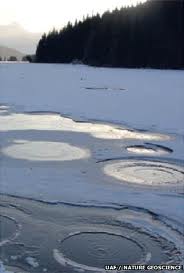 NASA Has Discovered Arctic Lakes Bubbling with Methane-and That's Very Bad News. NASA Has Discovered Arctic Lakes Bubbling with Methane-and That's Very Bad News. Lakes across Alaska and Siberia have started to bubble with methane, and the release of this highly potent greenhouse gas has scientists very worried. NASA footage showing the bubbling Arctic lakes was released last month. It was the result of a little known phenomenon called "abrupt thawing." This is where the permafrost-ground that has been frozen for potentially thousands of years-thaws faster than expected. Newsweek Wetlands are Key for Accurate Greenhouse Gas Measurements in the Arctic. The Arctic is rapidly warming, with stronger effects than observed elsewhere in the world. Determining whether the Arctic is continuing to take up carbon from the atmosphere or instead releasing it to the atmosphere is an urgent research priority, particularly as the climate warms. A new study now provides the first estimate of regional carbon budget for tundra in Western Russia for the 10-year period from 2006 to 2015. Science Daily 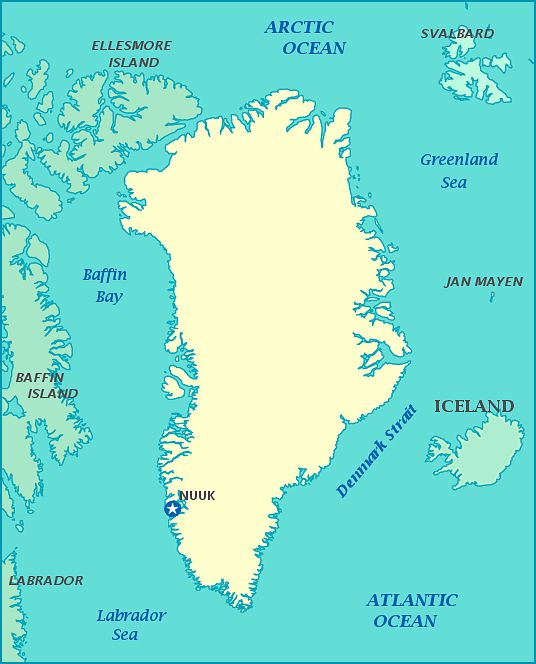 As Greenland Warms, Nature's Seasonal Clock is Thrown Off-Kilter As Greenland Warms, Nature's Seasonal Clock is Thrown Off-Kilter. From their perch on a rocky ridge in southwestern Greenland, graduate students Rebecca Walker and Conor Higgins peer through binoculars, looking for caribou. It's a cool, June day and the tundra is ablaze with tiny magenta, pink, and yellow wildflowers. Crystalline lakes dot the glacially carved valleys, and from the round-topped mountains you can catch the glint of the massive Greenland Ice Sheet to the east. Below, the Watson River tumbles toward Kangerlussuaq Fjord, 12 miles to the west. It's quiet, save for bird song, the rush of the wind, and the frequent crash of ice shearing off nearby Russell Glacier. Two decades ago, Walker and Higgins would have seen hundreds of caribou from the top of this same hill, set amid an ancestral caribou calving grounds. But these days the herds are a fraction of their former size, and Walker and Higgins spot only a handful of females and two calves a mile away. The ecologist supervising the students - Eric Post of the University of California, Davis - says the decline is very likely linked to a rapidly warming climate that is driving the schedules of caribou and the tundra plants they eat seriously out of balance. YaleEnvironment 360
|
|
Future Events
 North American Arctic Maritime and Environmental Security Workshop, September 18-20, 2018 (Anchorage, Alaska USA). North American Arctic Maritime and Environmental Security Workshop, September 18-20, 2018 (Anchorage, Alaska USA). The Arctic Domain Awareness Center at the University of Alaska and Trent University, Peterborough Ontario, jointly welcome participants to the North American Arctic Maritime and Environmental Security Workshop, University of Alaska Anchorage, Gorsuch Commons Center. The purpose of the event is to gather Arctic minded experts from government, operators, academics and industry principally from Canada and the U.S. to collaboratively assess security and provide solutions focused on the North American Arctic maritime region, including environmental and human security. The workshop will include plenary panels and breakout discussions to facilitate assessment and identify actions to mitigate risk and improve North American Arctic Maritime and Environmental Security. The "so what" of this workshop, is to build on prior discussions and assessments (much of which is contained in a preparatory Literature Review), and create a framework of actions that policy and decision makers can leverage. This event has reached capacity and no additional attendees can be admitted. For more information, email here.
September NWS Alaska Climate Outlook Briefing, September 21, 2018 (Fairbanks, Alaska USA and via webinar). The tools and techniques for making monthly and season scale climate forecasts are rapidly changing, with the potential to provide useful forecasts at the month and longer range. We will review recent climate conditions around Alaska, review some forecast tools and finish up the Climate Prediction Center's forecast for October and the early winter season. This event is part of the National Oceanic and Atmospheric Administration Science Seminar Series.
Scientific Exploration of the Arctic and North Pacific (SEA-NorP), September 25-27, 2018 (Mt. Hood, Oregon USA). This workshop will include discussion of hypotheses that can be tested by scientific drilling in the region, the technology necessary to achieve those goals, ideal sites for drilling based on existing data, and where additional site survey data is needed. The goal of the workshop organizers is that multiple proposals will be initiated at the workshop, both for full cruise legs and for shorter, targeted expeditions around the following themes: ocean gateways, geohazards, volatile cycling, ice histories at transition zones, biosphere and climate.
The second Arctic Biodiversity Congress is hosted by the Conservation of Arctic Flora and Fauna (CAFF), the biodiversity working group of the Arctic Council, and the Ministry of the Environment, Finland. The second Arctic Biodiversity Congress will build on the success of the first Congress, held in 2014 in Trondheim, Norway, and will bring together scientists, policymakers government officials, Indigenous representatives, Traditional Knowledge holders, industry, non-governmental organizations, and others to promote the conservation and sustainable use of Arctic biodiversity.
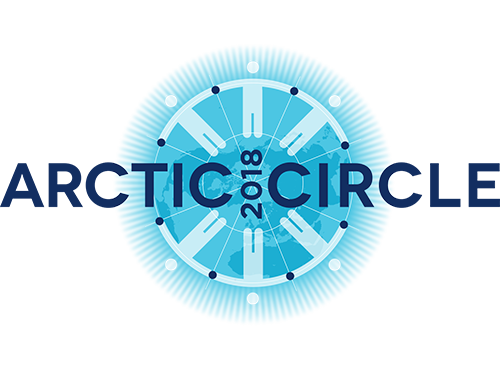 Arctic Circle Assembly, October 2018 (Reykjavik, Iceland). The annual Arctic Circle Assembly is the largest annual international gathering on the Arctic, attended by more than 2000 participants from 60 countries. It is attended by heads of states and governments, ministers, members of parliaments, officials, experts, scientists, entrepreneurs, business leaders, indigenous representatives, environmentalists, students, activists and others from the growing international community of partners and participants interested in the future of the Arctic. Arctic Circle Assembly, October 2018 (Reykjavik, Iceland). The annual Arctic Circle Assembly is the largest annual international gathering on the Arctic, attended by more than 2000 participants from 60 countries. It is attended by heads of states and governments, ministers, members of parliaments, officials, experts, scientists, entrepreneurs, business leaders, indigenous representatives, environmentalists, students, activists and others from the growing international community of partners and participants interested in the future of the Arctic.
Arctic Science Forum Associated with the 2nd Arctic Science Ministerial, October 25, 2018 (Berlin, Germany and via webcast). How vulnerable and how resilient are nature and the people of the Arctic region? How well do we understand the regional and global dynamics which are driving change in the Arctic? What impact will change in the Arctic have on us? These and other questions are the focus of this two-day conference. It will take interdisciplinary research in the Arctic to gain an understanding of past and future processes - a complex and cost-intensive venture. This makes an international network of Arctic research so important for delivering better results. Cooperation in research, the exchange of data, collaborative observation and monitoring schemes - international cooperation is imperative in research on the Arctic.
Only the Science Forum, on October 25th, will be webcast. The Arctic Ministerial, on October 26th, will NOT be webcast.
Maritime & Arctic Security & Safety Conference (MASS18) "Arctic Technology" November 15-16, 2018 (Newfoundland & Labrador Canada). Now in its sixth year, MASS has gained an international reputation as a must-attend event to gain a wide perspective on challenges, opportunities and policies related to the Arctic and North Atlantic maritime environments. The aim of this Government of Canada and the Government of Newfoundland and Labrador supported international conference is to promote stakeholder collaboration, technological innovation, harsh environment research & development, and world-class education efforts that are contributing to both Maritime and Arctic issues. This two day conference will draw a diverse group of speakers and attendees representing government, military, Canadian and U.S. Coast Guard, industry, academic leaders, Northern Leaders, research and other key stakeholders. We hope you can join us to be a part of this important dialogue
American Geophysical Union Fall meeting, December 10-14, 2018 (Washington, DC USA). The AGU 2018 Fall Meeting will mark another dynamic year of discovery in Earth and space science, serve as the advent of AGU's Centennial year, and provide a special opportunity to share our science with world  leaders in Washington, D.C. As the largest Earth and space science gathering in the world, the Fall Meeting places you in the center of a global community of scientists drawn from myriad fields of study whose work protects the health and welfare of people worldwide, spurs innovation, and informs decisions that are critical to the sustainability of the Earth.
ArcticNet: Annual Scientific Meeting 2018, December 10-14, 2018 (Ottawa, ON Canada). Canada's North is experiencing unprecedented change in its sea and terrestrial ice, permafrost and ecosystems under the triple pressures of climate change, industrialization and modernization. The impacts of these pressures can be seen on food and energy security, shipping, sovereignty, northern community health and well-being, and sustainable development and resource exploitation. All these issues have brought the North to the forefront of national and international agendas. Building on the success of its previous Annual Scientific Meetings and International Arctic Change Conferences, the Arctic Network of Centers of Excellence announces the 14th ArcticNet Annual Scientific Meeting.
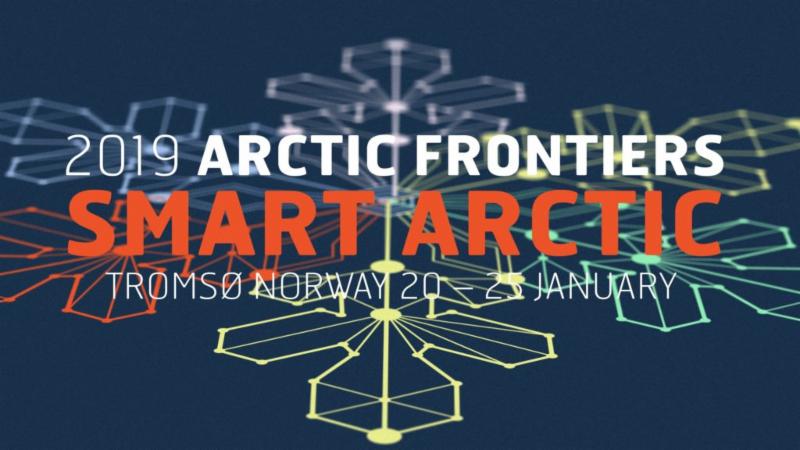 is a global scientific conference on economic, societal, and environmental sustainable growth. This year's theme will be "Smart Arctic," with a pan-arctic emphasis, and an effort to build new partnerships across nations, generations and ethnic groups. Arctic Frontiers provides a forum for dialogue and communication between science, government and industry. The plenary program will have five main sessions: State of the Arctic, Blue Growth, Smart Solutions, Bridging the Gap, and Arctic business prospects. An abstract-driven science program will address Plastics in the Ocean, the Future of Governance and Handling Vulnerability in Arctic Ecosystems, State of the Arctic and A Smart Arctic Future.
 of the AAG includes over 8,500 geographers converging from the U.S., Canada, and nearly 60 other countries in a typical year including geographers, GIS specialists, environmental scientists, and other leaders for the latest in research and applications in geography, sustainability, and GIScience. of the AAG includes over 8,500 geographers converging from the U.S., Canada, and nearly 60 other countries in a typical year including geographers, GIS specialists, environmental scientists, and other leaders for the latest in research and applications in geography, sustainability, and GIScience.
|
|

  
4350 N. Fairfax Drive, Suite 510
Arlington, VA 22203, USA
External links in this publication, and on the USARC's World Wide Web site ( www.arctic.gov) do not constitute endorsement by the US Arctic Research Commission of external Web sites or the information, products or services contained therein. For other than authorized activities, the USARC does not exercise any editorial control over the information you may find at these locations. These links are provided consistent with the stated purpose of this newsletter and the USARC Web site.
|
|
|
|
|
|
|
|
|
 Alaska Whalers Guaranteed Harvest 'In Perpetuity.' Alaska's subsistence whaling community gained a significant victory Wednesday at the International Whaling Commission's annual meeting in Brazil, with the approval of a measure which would allow whalers to automatically receive new quotas. Sen. Dan Sullivan said in a statement that IWC delegates not only approved renewal of the Alaska Eskimo Whaling Commission's bowhead whale quota for seven more years, but also "the automatic renewal of its whaling quota as long as harvests remain sustainable." KTVA
Alaska Whalers Guaranteed Harvest 'In Perpetuity.' Alaska's subsistence whaling community gained a significant victory Wednesday at the International Whaling Commission's annual meeting in Brazil, with the approval of a measure which would allow whalers to automatically receive new quotas. Sen. Dan Sullivan said in a statement that IWC delegates not only approved renewal of the Alaska Eskimo Whaling Commission's bowhead whale quota for seven more years, but also "the automatic renewal of its whaling quota as long as harvests remain sustainable." KTVA NASA Has Discovered Arctic Lakes Bubbling with Methane-and That's Very Bad News. Lakes across Alaska and Siberia have started to bubble with methane, and the release of this highly potent greenhouse gas has scientists very worried. NASA footage showing the bubbling Arctic lakes was released last month. It was the result of a little known phenomenon called "abrupt thawing." This is where the permafrost-ground that has been frozen for potentially thousands of years-thaws faster than expected. Newsweek
NASA Has Discovered Arctic Lakes Bubbling with Methane-and That's Very Bad News. Lakes across Alaska and Siberia have started to bubble with methane, and the release of this highly potent greenhouse gas has scientists very worried. NASA footage showing the bubbling Arctic lakes was released last month. It was the result of a little known phenomenon called "abrupt thawing." This is where the permafrost-ground that has been frozen for potentially thousands of years-thaws faster than expected. Newsweek As Greenland Warms, Nature's Seasonal Clock is Thrown Off-Kilter. From their perch on a rocky ridge in southwestern Greenland, graduate students Rebecca Walker and Conor Higgins peer through binoculars, looking for caribou. It's a cool, June day and the tundra is ablaze with tiny magenta, pink, and yellow wildflowers. Crystalline lakes dot the glacially carved valleys, and from the round-topped mountains you can catch the glint of the massive Greenland Ice Sheet to the east. Below, the Watson River tumbles toward Kangerlussuaq Fjord, 12 miles to the west. It's quiet, save for bird song, the rush of the wind, and the frequent crash of ice shearing off nearby Russell Glacier. Two decades ago, Walker and Higgins would have seen hundreds of caribou from the top of this same hill, set amid an ancestral caribou calving grounds. But these days the herds are a fraction of their former size, and Walker and Higgins spot only a handful of females and two calves a mile away. The ecologist supervising the students - Eric Post of the University of California, Davis - says the decline is very likely linked to a rapidly warming climate that is driving the schedules of caribou and the tundra plants they eat seriously out of balance. YaleEnvironment 360
As Greenland Warms, Nature's Seasonal Clock is Thrown Off-Kilter. From their perch on a rocky ridge in southwestern Greenland, graduate students Rebecca Walker and Conor Higgins peer through binoculars, looking for caribou. It's a cool, June day and the tundra is ablaze with tiny magenta, pink, and yellow wildflowers. Crystalline lakes dot the glacially carved valleys, and from the round-topped mountains you can catch the glint of the massive Greenland Ice Sheet to the east. Below, the Watson River tumbles toward Kangerlussuaq Fjord, 12 miles to the west. It's quiet, save for bird song, the rush of the wind, and the frequent crash of ice shearing off nearby Russell Glacier. Two decades ago, Walker and Higgins would have seen hundreds of caribou from the top of this same hill, set amid an ancestral caribou calving grounds. But these days the herds are a fraction of their former size, and Walker and Higgins spot only a handful of females and two calves a mile away. The ecologist supervising the students - Eric Post of the University of California, Davis - says the decline is very likely linked to a rapidly warming climate that is driving the schedules of caribou and the tundra plants they eat seriously out of balance. YaleEnvironment 360
